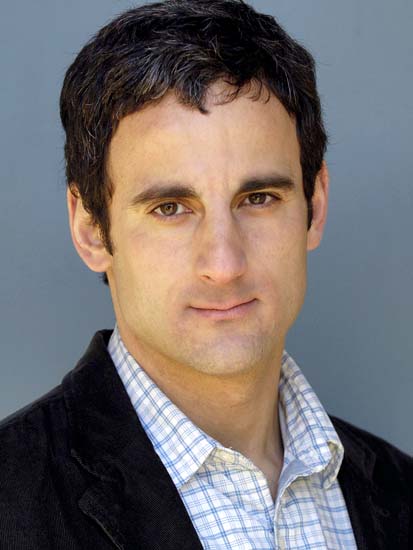Growing up in Westwood’s backyard, Ariel Sabar couldn’t have felt more at odds living under the same roof as his immigrant father, UCLA Professor Yona Sabar.
“Ours was a clash of civilizations, writ small. He was ancient Kurdistan. I was 1980s L.A. … He lived in his world, I in mine,” Ariel wrote in “My Father’s Paradise: A Son’s Search for his Family’s Past,” which was named the 2008 National Book Critics Circle Award for autobiography. The book chronicles Yona Sabar’s journey from the northern Iraqi village of Zakho to the halls of UCLA.
Intertwining biography and memoir, Ariel Sabar documents his father’s story with his own in a shared exploration of family heritage as father and son travel back to the Zakho of Yona Sabar’s birth.
With Yona Sabar’s family forced to immigrate amid Arab-Israeli conflict in the 1950s, he was the last boy bar mitzvahed in his Kurdish birthplace of Zakho. Thrust into the unfamiliarity of Israel at 13, Yona Sabar became a keeper of his distinct ancient Aramaic language overnight and would ultimately make his Kurdish-Jewish heritage his lifeblood.
Going on to study in Jerusalem, and later earning a graduate scholarship to Yale, Yona Sabar eventually found his calling in 1972 when he was hired as a professor of Hebrew and Aramaic at UCLA.
Wholly committing his professional career to teaching and preserving these languages, Yona Sabar would commit his entire life to his cultural roots and native tongue of Aramaic. Meticulously recording the linguistic roots of the increasingly rare, 2,700-year-old language, he spent years authoring the definitive Neo-Aramaic Dictionary.
Today, even after 37 years of teaching, Professor Yona Sabar remains invigorated by his work.
“Teaching is my greatest pleasure,” he said. “I cannot be bored seeing students make progress.”
Bringing with him firsthand knowledge of life in the Middle East, Sabar enriches students as he teaches language and literature.
“He really cares about what he does,” second-year Middle Eastern and North African Studies student Ashley Schilling said. “You learn a lot of Hebrew, but it’s not stressful because he wants for you to enjoy the language.”
As Yona Sabar diligently worked from his home office researching, Ariel Sabar worked to perfect his smooth California style and skateboarding skills. Favoring the sounds of rock and roll to the traditional Kurdish dirges of his father, Ariel Sabar made it his mission to distinguish himself in the modern realm of teenage cool.
Heading east to study at Brown University and establishing a career in journalism, Ariel Sabar thrived on the present as his father studied the past ““ the past that Ariel Sabar had rejected until 2002, when he too became a father.
“It took me a long time to grow up,” Ariel Sabar said. “For me, the turning point was the birth of my own son. Overnight, I wanted to pass on this knowledge of the past.”
While UCLA students forge their own identities apart from their families, Ariel Sabar urges them to investigate their parents’ identities as well and explore the kind of curiosity of heritage that inspired “My Father’s Paradise.”
“Spend some time figuring out who your parents were before they had you. Get to know who they were as kids, as teenagers, as single people out in the world for the first time,” Ariel Sabar said. “I did that with my father and came to see a man a lot more like me than I had ever expected. Getting a sense of him in his earlier years helped close the gulf I’d always felt separated us.”
Understanding the past with efforts to enrich the present is the poignant creed of “My Father’s Paradise.”
“I believe every culture, even remote cultures, can contribute to our lives. The past is not something we should forget,” Yona Sabar said. “The past can help us. It can modify our views of the present and gives us tools not found on TV and the media. Exploring the past … bringing it to the present keeps me going.”
